Somebody has rightly said, “Hinduism is not a religion, it is a way of life.” Here nature is of paramount importance and the devas of Hinduism are basically different forms of the nature. It is amazing how various practices of Hinduism have an underlying scientific basis. Let’s look at 22 Hindu rituals to see how scientific this ancient religion has been.
Vriksha (वृक्ष)
People are advised to worship Neem and Banyan tree in the morning. Inhaling the air near these trees, is good for health.
[wp_ad_camp_1]
Yoga (योग)
If you are trying to look ways for stress management, there can’t be anything other than Hindu Yoga aasan Pranayama (inhaling and exhaling air slowly using one of the nostrils).
Pratishthana (प्रतिष्ठान)
Hindu temples are built scientifically. The place where an idol is placed in the temple is called ‘Moolasthanam’. This ‘Moolasthanam’ is where earth’s magnetic waves are found to be maximum, thus benefitting the worshipper.
Tulasi (तुलसी)
Every Hindu household has a Tulsi plant. Tulsi or Basil leaves when consumed, keeps our immune system strong to help prevent the H1N1 disease.
The rhythm of Vedic mantras, an ancient Hindu practice, when pronounced and heard are believed to cure so many disorders of the body like blood pressure.
Tilak (तिलक)
Hindus keep the holy ash in their forehead after taking a bath, this removes excess water from your head.
Kumkuma (कुंकुम)
Women keep kumkum bindi on their forehead that protects from being hypnotised.
Hasta Grasa (हस्त ग्रास)
Eating with hands might be looked down upon in the west but it connects the body, mind and soul, when it comes to food.
Pattala (पत्तल)
Hindu customs requires one to eat on a leaf plate. This is the most eco-friendly way as it does not require any chemical soap to clean it and it can be discarded without harming the environment.banana; palash leaves
Karnachedana कर्णछेदन
Piercing of baby’s ears is actually part of acupuncture treatment. The point where the ear is pierced helps in curing Asthma.
Sprinkling turmeric mixed water around the house before prayers and after. Its known that turmeric has antioxidant, antibacterial and anti-inflammatory qualities.
Gobara (गोबर)
The old practice of pasting cow dung on walls and outside their house prevents various diseases/viruses as this cow dung is anti-biotic and rich in minerals.
Gomutra (गोमूत्र)
Hindus consider drinking cow urine to cure various illnesses. Apparently, it does balance bile, mucous and airs and a remover of heart diseases and effect of poison.
The age-old punishment of doing sit-ups while holding the ears actually makes the mind sharper and is helpful for those with Autism, Asperger’s Syndrome, learning difficulties and behavioural problems.
Diya (दिया)
Lighting ‘diyas’ or oil or ghee lamps in temples and house fills the surroundings with positivity and recharges your senses.
Janeu (जनेऊ)
Janeu, or the string on a Brahmin’s body, is also a part of Acupressure ‘Janeu’ and keeps the wearer safe from several diseases.
Decorating the main door with ‘Toran’- a string of mangoes leaves;neem leaves;ashoka leaves actually purifies the atmosphere.
Charanasparsha (चरणस्पर्श)
Touching your elder’s feet keeps your backbone in good shape.
Chitagni (चिताग्नि)
Cremation or burning the dead, is one of the cleanest form of disposing off the dead body.
Chanting the mantra ‘Om’ leads to significant reduction in heart rate which leads to a deep form of relaxation with increased alertness.
Hanuman Chalisa (हनुमान चालीसा)
Hanuman Chalisa, according to NASA, has the exact calculation of the distance between Sun and the Earth.
The ‘Shankh Dhwani’ creates the sound waves by which many harmful germs, insects are destroyed. The mosquito breeding is also affected by Shankh blowing and decreases the spread of malaria.

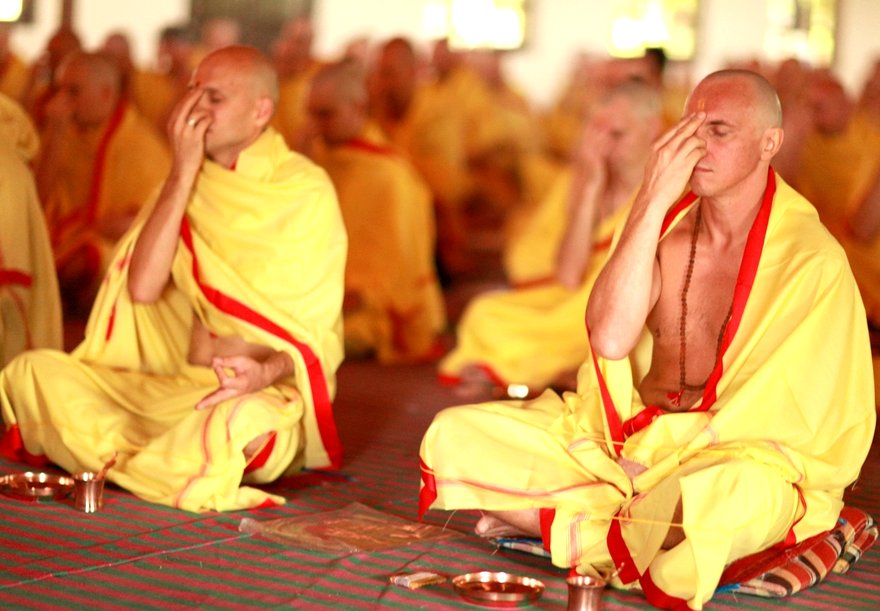
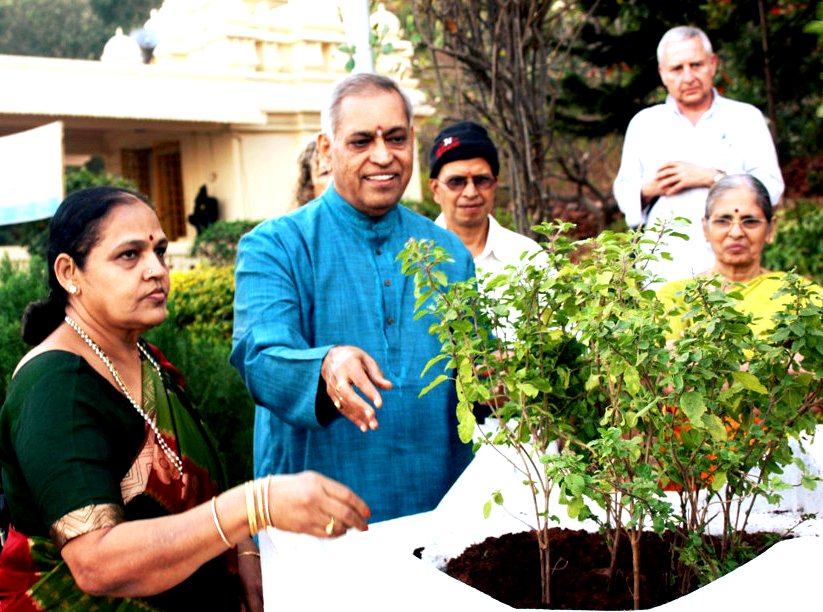


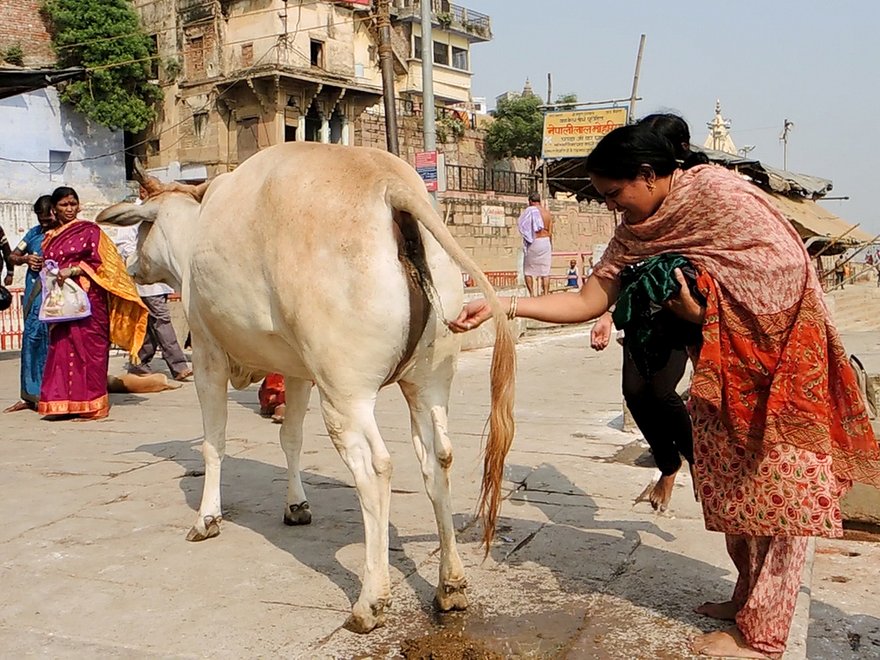
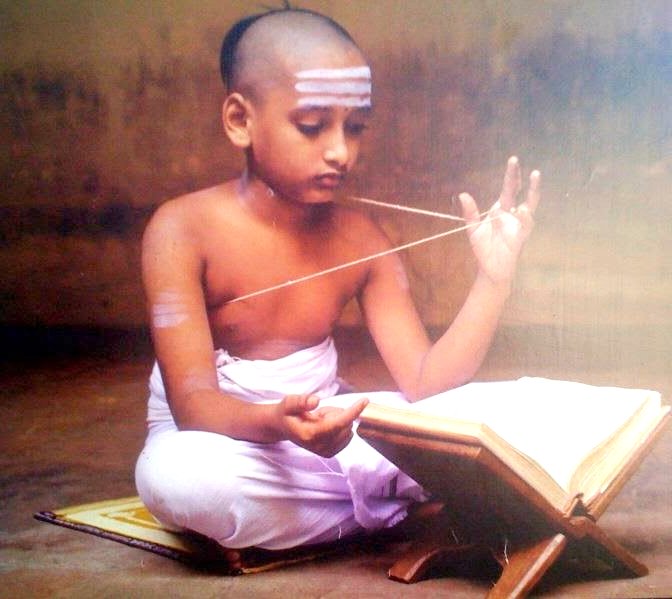
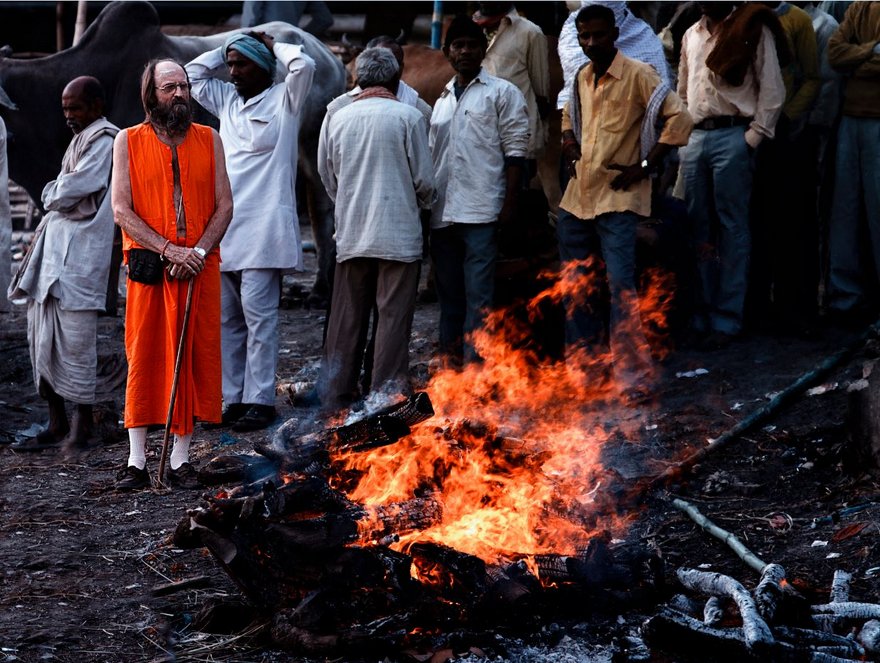
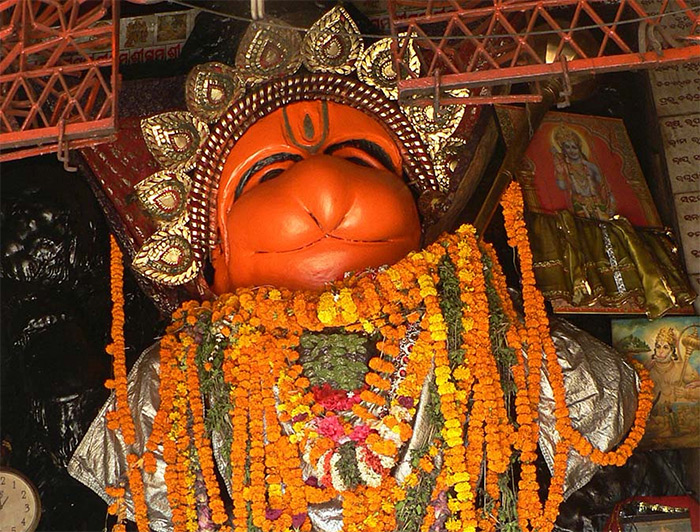

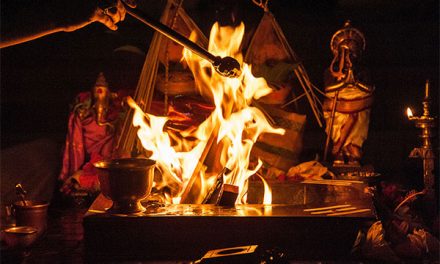










very good knowledge
Great info.. thanks..!!
A very good knowledge for Hindu religious and over health
Thanks
Excellen, sweet n short description
very good information, thank you very much
Golden knowledge
The trees provide lot of oxygen during day time. Spending time under/near the trees help us to inhale lot of oxygen.Tulasi has medical properties to cure many deseases. Sitting on the floor helps knees and arthritis does not set. Eating with hand is a good exercise for the fingers and wrist, elbow. Liked the article.
very good information. need to be practiced by all for well being
Excellent Information.
Very nice explanation for why we have a bell in the temple.
Good Info and thanks for the info….
Excellent information.Please keep going for the benifit of mankind. A yeomen service to Human race
PRAYERS TO BE OFFERD REVERENTLY FOR WORLD PEACE,GOOD HEALTH FOR YOUNG,MIDDLEAGED AND ALL SENIOR CITIZENS OF THE WORLD,TODAYS WEALTH PLEASE MAINTAN HARMONY WITH NATURE.SHUBHAM BHAVATU
TO ALL..
Very nice information. Keep sending such articles..
Keep up the excellent work. we need to revive hinduism by educating the younger generation . Even the older hindus do not know all about hinduism as it is so vast . Proud to be a HINDU
superb information most of the things have been observed by our ansestersz they prepared system to as anustana but un fortunately we r not fallowing them.
Yes Sir. Hinduism is a way of life and not a religion. It is right. And, it is absolutely right. And, very much right.
Many truths are hidden in the Hindu Sastras which are now being deciphered by scientists. When they publish them, we know that they already exist in our sastras.
T.V. kALYANAKRISHNAN
Nice work keep it up.
Charanasparsha (चरणस्पर्श)
Touching your elder’s feet keeps your backbone in good shape.
Ha.. Ha… I thought it was stooping low to make things happen.
Can you elaborate on the relationship of Hanuman Chalisa with the calculation of exact distance between earth and sun? How do you say that?
Being a devout Hindu, I do accept with all humility what all you stated. Some people mock at us, or make fun of us. Well, some things are not put on public domain. Space does not permit me nor you to elaborate. Besides…. some other reasons. Yet the Hanuman Chalisa containing info about distance from Earth to Sun does baffle me. Can you quench my thirst?
Great feeling, being a Hindu. The information published till date are very useful and hope an uninterrupted flow of such things in the future also. No doubt, Hinduism is the mother of any other religion
I want to be a part of hinduism.
Moe than everything else HINDUISM is a continuing process of seeking truth, no dogma or rigidity – and in that path the only thought process which allows individuals continuous quest for truth while covering the paths of all individuals in its cumulative knowledge
I HAVE COME TO KNOW LOT OF INFORMATION ABOUT HINDUISM
“jug sahasra yojan par bhanu,lilyo tahi madhur fal janu”
this is where we find exact distance b/w sun & earth!
charan sparsh is a position by which backbone,lower back,abdomen and naval is benifitted. With respect to spritualism all seven chakra’s get balance by doing this.
very informative. Every hindu should know and pass to our future generation, as well as to protect our nature
In Hanuman Chalisa, it is said : “yuga sahastra yojana para bhanu, leelyo taahi madhura phala janu
1 yuga = 12000 celestial years
1 sahastra = 1000
1 yojana = 8 Miles
yuga x sahastra x yojana = para bhanu
12,000 x 1000 x 8 miles = 96,000,000 miles
1 mile = 1.6kms
96,000,000 x 1.6kms = 153,600,000 kms to the Sun.
The earth moves in an elliptical orbit around the sun, so there will be slight variation depending on the season.
“Hinduism is not a religion, it is a way of life.”
Hindu is a dharma and it is more than a way of life. It is very deep philosophy explaining the reality of the cosmos, of the prakriti, of the self and of the mind. Though it is an integral whole, it has elements of physics, psychology, philosophy and astro- physics. Dharma also explains evolution of individual life as well as that of the life on the planet. Kalpa theory is explanation of the oscillating universe. For specific mantras covering these aspects, you may check ‘Hindu Dharma- A Teaching Guide’
Very insightful and enlightening.
Very insightful and enlightening about the rituals of Hinduism.
I am Interested to know more about Hinduism and thanks to given 22 reasons based on science.
excellent information given ………
it is needed to utilise ancient indian hinduism sciences
Charanasparsha
—————–
It is a scientifically accepted fact that the nerves coming directly from our brain ( corresponding seat of Sahasrara – the thousand petaled Lotus, the highest of all seven chakras ) have there’s terminals, at the tips of fingers on hands & feet.
When we bend down and touch the feet of elders, they in turn touch on our heads by hands with the feelings of love, compassion & goodwill which flow down to us as blessings through energy currents.
” IndiaDivine ” is doing great service to the entire Global Hindu community which is highly appreciable !
Great information. Proud to be Indian and Hindu…
Very informative. Some of them we knew as we have been following your most valuable articles.
The SHANKA is very new to me – a very good business idea also – DENGE will disappear if everyone keep a SHANK in the house and blow same 3/4 times a day and before going to sleep. Mosquitoes will disappear — follow this advice and report its result.
Superb information. I heartily appreciate it. Please do post more of such great info that Hindus need to know. thanks
I thank you for all these beautiful informations that you have so kindly provided.
They are soul searching……………
Very nice…also I would like to know many more things about Hinduism.like cat crossing,mundan if someone dies,sleeping in either direction,vegetarian.
1 yuga = 12000 celestial years
1 sahastra = 1000
1 yojana = 8 Miles
yuga (duration)x sahastra (constant)x yojana (distance)= para bhanu (years x distance)
12,000 x 1000 x 8 miles = 96,000,000 years*miles
1 mile = 1.6kms
96,000,000 x 1.6kms = 153,600,000 years*km to the Sun?
False! You multiply a duration with a constant with a distance. The result is a SPEED, not a distance.
As the duration is 12 milleneas, it’s realy slow.
I also have another problem:
How can anything be based on science when it dates back to over a millenia BEFORE that science was even devlopped? It’s impossible. The similarities are only coincidences, that’s all.